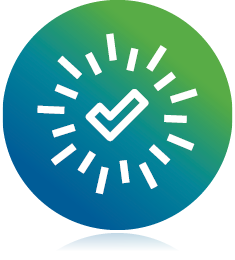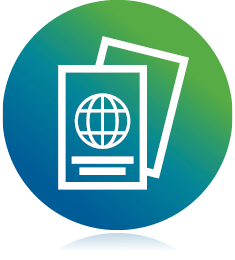
Renewing a degree program
Explore the stages involved in renewing a degree program at Georgian, including designing the curriculum, seeking approvals, working through the application process, and marketing the program.
What you need to know
Degree programs are reviewed regularly, at least every five years, and adhere to the curriculum standards of Georgian College, the Postsecondary Education Quality Assessment Board (PEQAB) and Ministry of Training, Colleges and Universities (MTCU).
In addition to internal processes and reports related to formal five-year renewals, degree programs are also subject to a formal renewal process that must fulfil PEQAB guidelines. As such, there are a number of steps involved in conducting a formal degree program renewal involving both internal and external processes.
1. Preparation for program renewal
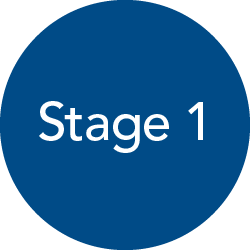
The process of program renewal for a degree program should begin two calendar years before the degree consent expires.
See the Program Renewal Checklist – Honours Bachelor’s Degrees to stay on track.
Program renewal depends upon a team of academic experts working collaboratively. This team, assembled by the dean or associate dean, includes the dean or associate dean, program renewal team lead, program co-ordinator, faculty experts in the area, and a member of the Office of Academic Quality (OAQ) to be consulted as necessary. The team should meet weekly or biweekly for the duration of the project.
The project renewal team also works closely with internal and external interested and affected parties during different stages of the process. Examples include:
- Program Advisory Committee (PAC)
- Program Evaluation Committee (PEC)
- industry partners
- graduates and students
- Office of the Registrar (RO)
- external academics
- Co-op Education and Career Success
- Liberal Arts
- Library Commons
- Information Technology
For a list of complete interested and affected parties, refer to the Integrated Planning and Stakeholders Consultation process.
Once the program team is identified, members will meet with an academic quality lead who will help facilitate the process of internal consultations, provide an overview of the degree renewal stages, and share best practices and procedures for curriculum renewal.
Once all of the up-front work is complete, teams move onto stage two.
2. Curriculum renewal
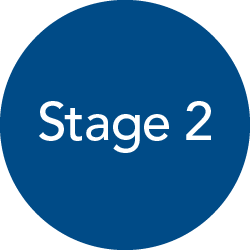
In stage two of the program renewal process, the academic area works toward ensuring that the college is able to deliver the quality of education necessary for a program’s success. The academic area is responsible for designing the program curriculum and the Program Costing.
To begin the curriculum renewal, program teams need to do an analysis of the existing program. A visioning exercise or Strengths, Weaknesses, Opportunities and Threats (SWOT) analysis are good ways to look at the program as a whole and find areas that might require revision. Whatever the approach, it is imperative to look at the current program in terms of what is working, what needs improvement, what might be missing, and what might be superfluous. When analyzing the success of an existing program, include consideration of the following:
- student feedback
- dean’s council meetings
- program assessment reports
- previous program renewal documents
- accreditation reports and commitments
- relevant pathway agreements
- potential pathways between credentials
- degree-level standards
- institutional learning outcomes
- program differentiation
- alignment with Georgian’s mission, vision and strategic values
Program teams may choose to analyze the program in a small group or include additional program faculty or interested and affected parties.
Consultation with internal and external interested and affected parties is also an essential part of program renewal and takes place at various stages throughout the process. The PAC, made up of industry advisors, for example, provides subject matter expertise and knowledge of the employment landscape that will help to ensure the program is current and relevant to future employment and academic pathways. The RO can confirm how these changes impact admission requirements and help resolve any issues around how changes to the structure of a program may impact funding, student fees, academic space and scheduling. Regulatory bodies are consulted regarding changes to external requirements.
Internal interested and affected parties from other areas of the college should be consulted on an as needed basis. Examples include the following:
- graduates and students
- Credit for Prior Learning
- Co-op Education and Career Success
- Physical Resources
- international recruitment
- Liberal Arts
- Library Commons
- Information Technology
For a list of complete interested and affected parties, refer to the Integrated Planning and Consultation process.
Degree programs in CAATs must meet the MTCU Qualification Standards for a Bachelor’s Degrees (Honours) in an applied area of study, as defined in the Ontario Qualifications Framework and all of the PEQAB Degree Program Quality Review Standards and Benchmarks, as outlined in the most recent Handbook for Ontario Colleges.
Degree programs contain three basic elements described below: Core courses, non-core or breadth courses, and work-integrated learning.
Core courses
Core courses are defined as those courses with subject matter that is within the main discipline of study.
In general, this means they are in the areas described in the nomenclature of the degree. In Bachelor of Business Administration – Automotive Management, core courses are in business, or specific to the automotive area and can be either mandatory or elective. For example, a selection of Special Topics courses in the core area may offer students elective choices in the core area of study and allow the program the flexibility for currency.
In degree programs, there must be a balance of theory and practice in the core area. Program and course learning outcomes should reflect this balance. In addition, “increasingly complex theory” must be supported by the sequencing of course learning outcomes and by the prerequisite structure. No more than 80 percent of courses in a degree program can be in the core area of study.
Non-core/breadth courses
By definition, non-core/breadth courses are those courses that are taken in areas outside the main discipline of the degree.
In general, this means they are outside the areas described in the nomenclature of the degree. For example, Bachelor of Business Administration – Automotive Management non-core/breadth courses are neither in business, nor specific to the automotive area. Some breadth courses may be mandatory, but some breadth courses must be electives. At least 20 per cent of course hours must be non-core courses.
Work-integrated learning
Whether the work-integrated learning experience is a paid co-op, internship or other work experience, the following PEQAB Benchmark must be met:
Any work-integrated learning experience, a) is appropriate to the field of the program b) has articulated, appropriate learning outcomes c) is supervised by both a college representative with appropriate academic credentials and an employer/staff member who collaborate to evaluate the student performance and d) amounts to no less than 14 weeks of full-time equivalent work (420 hours), either in one block, or in multiple cumulative blocks appropriate to achieving the learning outcomes. (“Handbook for Ontario Colleges”, 2016, p. 23)
Five-year program renewal includes the review and revision of four key documents: the Program Outline, Program Map, Program Tracking Sheet, and the Detailed Curriculum Map. These documents, along with the Program Costing and Program Renewal Report, must be approved by Academic Council (AC).
In order to revise the Program Outline, access a copy of the program outline template. Doing this ensures you are using the most current templates. This document serves the needs of students, faculty, administrators, and external approval bodies.
The Program Tracking form is an excel spreadsheet that illustrates the sequencing of courses as students take them from semester one through to graduation. It includes space for essential information such as course code, title, requisites, hours, and comments to indicate such things as common courses or rationale for hours (or changes come the five-year program renewal). Common courses must be identified.
Don’t forget to complete the bottom section which requires identification of whether or not work-integrated learning in the program exists in order to meet the requirements of a professional or occupational regulatory body, and whether or not the course database has been reviewed and common courses incorporated where appropriate.
This document must be signed by the curriculum team faculty lead and the dean/associate dean.
The Program Map helps the college ensure that a program is designed for student success in meeting the Degree Level Standard, and the Program Learning Outcomes (PLOs). All planned courses for a program must be mapped to each of the Degree Level competencies and the PLOs. In program renewal, this involves aligning the proposed courses with the revised PLOs and with the Degree Level Standard.
Different from a Program Map, a Detailed Curriculum Map illustrates where course information is taught (introduced), reinforced (reviewing or returning to concepts) and assessed, and how the courses maps to the PLOs.
Because a program renewal can have budgetary implications, the dean/associate dean is responsible for reviewing the existing program costing and modifying it to reflect any changes. Be sure to review and update the following:
- program review costs
- program delivery costings (including online development, specialized space, specialized IT requirements, capital and specialized equipment)
- altered staffing plan
- changes to Library Commons and learning resource requirements
- Return on Investment (ROI) analysis
The dean/associate dean must consult with Financial Planning to review and approve the new costing for the program renewal.
The final document required for internal approval is the Program Renewal Report. This document collates the review findings and summarizes recommendations for program changes. This report provides readers with an overview of the program prior to changes, goals for the program moving forward and details on the plans to achieve these goals.
3. Internal approval process
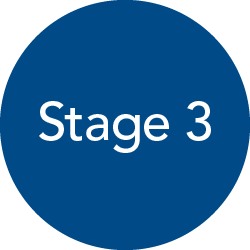
Once the team has renewed their curriculum and the Program Outline, Program Map and Program Tracking are ready for AC, teams should have a meeting with their PAC to share and discuss any changes that are being proposed. In addition, for degree programs, the minutes from the PAC meeting indicating support for the curriculum are important documentation that will be provided to external assessors during the renewal process.
Prior to submitting program changes for approval by AC, program teams should bring the proposed changes to the PAC for final consultation and to capture official support for the changes in minutes. These will ultimately be included in the submission to PEQAB for consent renewal.
The dean/associate dean is responsible for approving the revised Program Outline, Program Map, Program Tracking, Detailed Curriculum Map and Program Renewal Report on behalf of the academic area. At this point, the documents are brought to AC for approval.
The dean/associate dean submits all final documents to the OAQ at least two weeks in advance of the scheduled AC meeting. This gives the OAQ time to review the documents to ensure they meet ministry and curriculum system requirements. If anything needs clarification, the documents may be sent back to the academic area for revision. The documents can then be resubmitted and distributed to the members of AC no later than one week prior to the meeting.
The dean/associate dean and faculty lead present the renewal at AC for discussion and approval. If there are any concerns, the team may have to revise the documents and bring them back for approval at the following meeting. If the program has support as presented, AC approves the updated program documentation.
The OAQ enters the new program information into the curriculum management system and keeps all approved documents on file.
The internal renewal processes will inform the PEQAB program review procedure.
4. PEQAB program renewal procedure
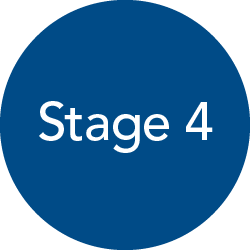
The PEQAB degree program evaluation procedure has three basic elements: Self-study, Student Work Samples, and AC.
1. Self-Study
A review of the program by faculty members and administrators of the program based on evidence measured against PEQAB’s Program Evaluation Standard, including strengths and weaknesses, desired improvements, and future directions. Since Georgian’s Program Evaluation Policy is aligned with PEQAB’s Standard, much of this work will have been done in the Program Renewal Report.
2. Program Evaluation Committee
In consultation with the OAQ and the Office of the Vice President Academic (VPA), the program dean and associate dean constitutes a Program Evaluation Committee (PEC) to provide external program evaluation.
Unlike the PAC, which may comprise of community and industry representatives in addition to academics, the PEC must be composed primarily of “senior academic peers (both scholars and administrators) with relevant expertise from both outside the college and internal to the college, but outside the program and free of any conflict of interest.”
The PEC assesses the program based on the self-study, and a site visit attended by a variety of interested and affected parties, usually including students, graduates, faculty members, employers and administrators.
3. Report of the PEC
The PEC report includes an assessment of program quality and recommendations. The report is received by senior administration. The report, and any actions that will be taken to respond to the recommendations, is shared with AC, the Board of Governors, faculty members, and students in the program.
Individual samples of student work are among the few direct measures of the academic quality of a program. For this reason, in degree program renewal, the assessment of student work is included in the PEC site visit and is also an important component of the PEQAB renewal quality assessment. Gathering student work each semester is the responsibility of the academic area. Student work must be classified by faculty members into each of the following categories:
- Exemplary (obtaining the highest grades on the assignment, these pieces of student work represent the best of what students produce)
- Average (usually obtaining grades in the 70s, these pieces of student work represent what the average student produces)
- Minimally acceptable (usually obtaining grades in the mid-60s, these pieces of student work represent acceptable work for students progressing toward graduation).
Detailed Guidelines for Compiling and Selecting Samples of Student Work is available for reference.
If, as a result of the PEQAB review process, there are changes to the Program Outline, Program Map and/or Program Tracking, the dean/associate dean is responsible for approving the documents on behalf of the academic area before the updated documents are brought back to AC for approval. OAQ then enters the updated program information into the curriculum management system.
5. PEQAB/MTCU renewal application
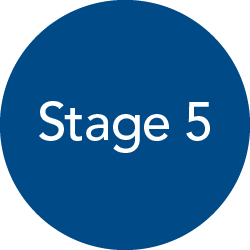
A written application to renew consent is submitted to the MTCU at least nine months before consent expires.
PEQAB posts the Submission Guidelines for Ontario Colleges (Renewal of Consent) on their website under PEQAB’s Handbooks and Guidelines . The accompanying “Handbook for Ontario Colleges: 2016” is an essential resource for understanding the sections of the Submission Guidelines publication. Because the requirements for the renewal submission are revised annually (usually in June), it is best to refer directly to their website.
The OAQ can provide assistance in navigating the requirements, and has previous versions as resources and templates, as well as updated institutional policies and procedures.
The PEQAB submission requires that course outlines for all core and non-core courses are included in the submission. So, at this stage, program curriculum teams will next place their attention on completing course outlines for all new courses and continuing the instructional design of the program.
When doing so, keep in mind such things as:
- purpose and goals of the course within the context of the program
- sequence of learning, assessment, instructional methods and resources
- continuous quality assessment and improvement plans
- accessibility and inclusivity (e.g., that students with disabilities and from all backgrounds can participate with an equal chance of success)
- characteristics of degree-level learning such as increasingly complex theory
- well-articulated appropriate learning outcomes for work-integrated learning
- scaffolded requirements for research and academic writing
- recommended reading in the upper years of the program that includes primary source scholarly journal articles.
Prior to submitting the application to renew consent, each individual course outline needs to be drafted, approved by the program area associate dean, and submitted to the OAQ for implementation. A new degree credit course request form and degree credit course changes form provide instruction regarding all of the essential components: title, hours, semester offered, delivery method, requisites and equivalents, the course description, course learning outcomes, course content, and course evaluation.
Remember, all courses and their learning outcomes must stem from the approved or proposed PLOs in the Program Outline, including work-integrated learning and non-core/breadth courses. As such, the approved Program Map should be referred to regularly, to ensure individual courses are connecting to the overall program goals.
The PEQAB submission requires that the program demonstrates that benchmarks are met in other areas as well, including:
- PAC minutes that contain the motion that the program changes are supported
- faculty qualifications, credentials and scholarship must be demonstrated by the inclusion of updated Curriculum Vitae for every faculty member that may be teaching in the program
- gap analyses for degree completion arrangements
- library resources.
Individual samples of student work are among the few direct measures of the academic quality of a program. For this reason, in degree program renewal, the assessment of student work is an important component of the PEQAB renewal quality assessment. Gathering of student work each semester is the responsibility of the academic area. Student work must be classified by faculty members into each of the following categories:
- Exemplary (obtaining the highest grades on the assignment, these pieces of student work represent the best of what students produce)
- Average (usually obtaining grades in the 70s, these pieces of student work represent what the average student produces)
- Minimally acceptable (usually obtaining grades in the mid-60s, these pieces of student work represent acceptable work for students progressing toward graduation).
Detailed Guidelines for Compiling and Selecting Samples of Student Work is available for reference.
Full details related to these requirements can be found in the PEQAB’s Submission Guidelines and support for understanding and demonstrating these requirements is available from the OAQ.
The Application for Renewal of Ministerial Consent must be reviewed by the VPA before sending to the ministry.
6. PEQAB/MTCU quality assessment and consent
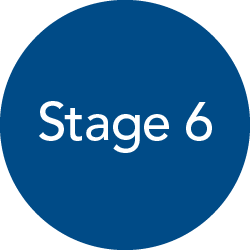
Once the work of submitting the application for consent renewal is done, the most common question is, “what happens next?”.
Here are the highlights:
- The completed Application for Consent Renewal is submitted to the ministry with a cheque for $5000
- MTCU refers the application to the PEQAB, and PEQAB appoints an expert panel to review the application and informs the college representative who is on that panel.
- The dean/associate dean and OAQ work with the panel to set a date and an agenda for the site visit. Preparation for the site visit can begin immediately after the application is submitted. In their 2016 Handbook for Ontario Colleges (Appendix 8.1) PEQAB introduced a Site Visit: Suggested Agenda Template, which can be used as a guideline for planning the site visit.
- The OAQ helps facilitate the site visit, which usually includes an overview presentation providing evidence for how each of the PEQAB Standards and Benchmarks are met, meetings with internal and external interested and affected parties, and a tour of relevant areas of the facility.
- The members of the expert panel develop a report that assesses the application against the board’s standards and benchmarks and makes a recommendation about whether the proposed program meets the PEQAB Standards.
- The applicant is given an opportunity to respond to the panel’s report.
- The PEQAB Board reviews the application, the panel’s report and the college’s response, and makes a recommendation to the ministry to grant or deny consent renewal for the degree. PEQAB informs the college that this recommendation has been made to the ministry, but not whether the recommendation was to grant or deny consent.
- The minister considers PEQAB’s recommendation and communicates the decision about consent, the duration of consent, and any conditions of consent, to the president of the college.
7. Marketing cycle
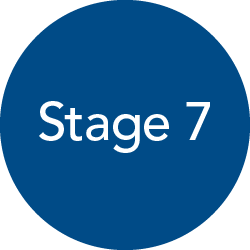
Accurate, consistent, and timely information is required well in advance of the renewed program launch in order to attract students to the college through high school visits, college open houses, employers, the program guide, Georgian’s website, and promotion on Ontario Colleges. The information is also necessary for the college to:
- establish tuition and program ancillary fees
- register students
- schedule classes and assign space
- enable students to plan their educational paths to graduation
- allow students to select their courses by semester
- determine graduation eligibility
Upon AC approval, there are three critical deadlines:
- June: OAQ submits the revised program information to Marketing, Communications and Recruitment for inclusion in the college program guide
- September: RO provides the information to Ontario Colleges for promotion
- September of the following year: the revised curriculum is launched (e.g., a revised program loaded into Ontario Colleges in September of 2017 will offer the new curriculum September 2018)
Questions?
Contact the OAQ team
We can provide a number of resources with regard to curriculum development and design, and work with program teams on curriculum development.
We’re here to assist with answers to questions about the Curriculum Information Management system (CIM), approvals, deadlines and more.
Send us an email:
academicquality@georgiancollege.ca



